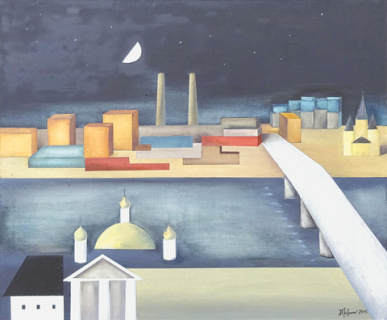
On a public bus rattling through Moscow, a fierce debate erupts not over politics, but over the biography of Alexander Pushkin, Russia’s national poet. A young woman insists he was born in Nizhny Novgorod, confusing him with his nanny, while her elderly companion counters with the facts, only to be dismissed. The argument, a microcosm of a wider cultural obsession, ends abruptly as they disembark at the House of Music. This is not an isolated incident but a glimpse into a society where history and literature are not dusty relics, but living, breathing subjects of passionate, and often hilariously misinformed, public discourse.
This reverence for the literary arts coexists with a profound and cynical self-awareness of its own absurdities. Consider the world of writers, a universe of towering egos and fragile vanities. One satirical sketch imagines a poet writing a bitter obituary for an editor who never published his “genius” work, lamenting the corruption that denied him his deserved fame. It echoes the Danish author Hans Scherfig’s observations of artistic circles, where poets lavish praise on each other while painters venomously tear each other down. In this world, an artist doesn’t just want to be called talented; he demands to be acknowledged as a genius, ready to attack anyone who suggests otherwise. It’s a culture that both worships its creators and mercilessly lampoons their pretensions.
The national conversation extends deeply into the past, often recasting grim historical moments with a strange, romantic charm. An old Soviet-era book, for instance, describes the 19th-century Decembrist revolutionaries—exiled to Siberia for attempting to overthrow the Tsar—as “charming” figures. They are depicted playing chess with local Buryat people (and politely losing) or, in the case of one, facing death cheerfully after having “caught a cold reading Schiller.” This sentimental portrayal of failed revolutionaries speaks volumes about the national tendency to mythologize dissent, transforming brutal historical realities into palatable, even endearing, narratives of noble failure.
At the heart of this cultural introspection is a love for binary choices that reveal deep-seated fault lines. An old parlour game, sometimes attributed to the poet Anna Akhmatova, asks: Pushkin or Lermontov? Moscow or St. Petersburg? Cat or dog? This “this or that” framework can be expanded to capture the nation’s most fundamental tensions: the revolutionary Trotsky or the tyrant Stalin? The philosopher Plato or Aristotle? The choices extend into every facet of life, from literary tastes to preferred drinks—vodka or beer? Filtered or unfiltered? These are not merely matters of preference, but identity markers in a culture defined by its internal debates and dualities.
Taken together, these fragments of conversation, satirical jabs, and historical reflections offer a portrait of a national psyche far more complex than any monolithic political facade. It reveals a culture engaged in a perpetual inner monologue, constantly arguing with itself about its poets, its heroes, its past, and its very identity. From a bus argument about Pushkin to a cynical obituary, this discourse is where the Russian soul is most vividly on display—argumentative, poetic, deeply historical, and laced with a profound sense of the absurd. For anyone seeking to understand the country beyond the headlines, listening to this conversation is essential.
